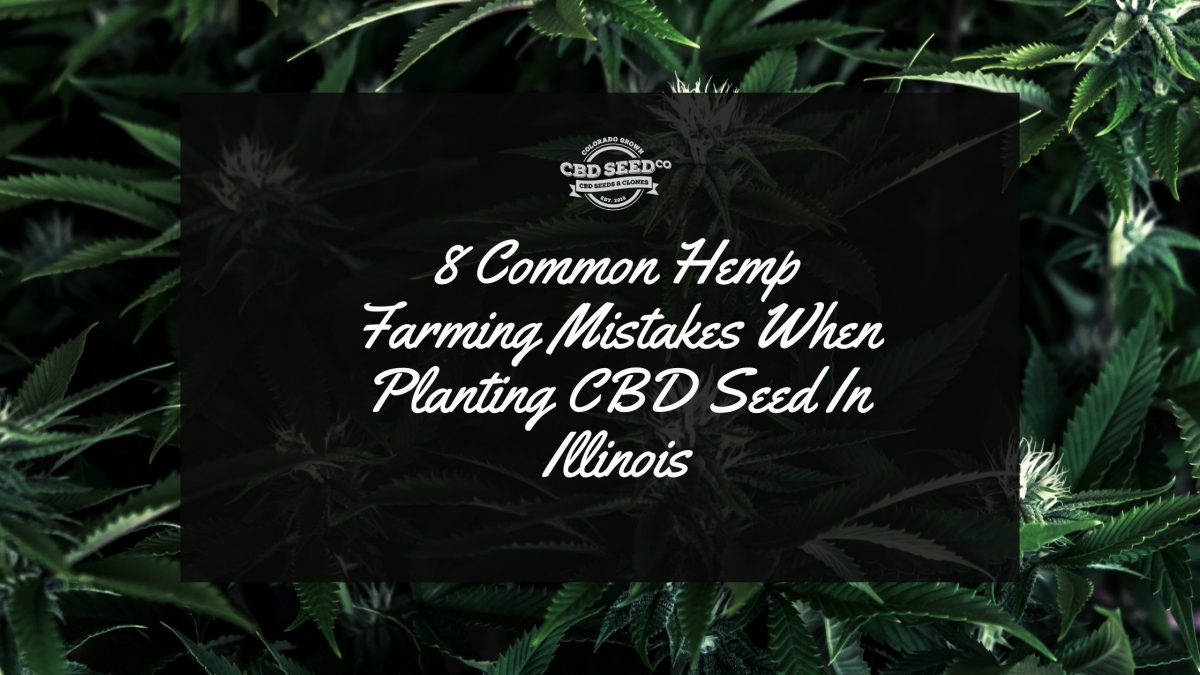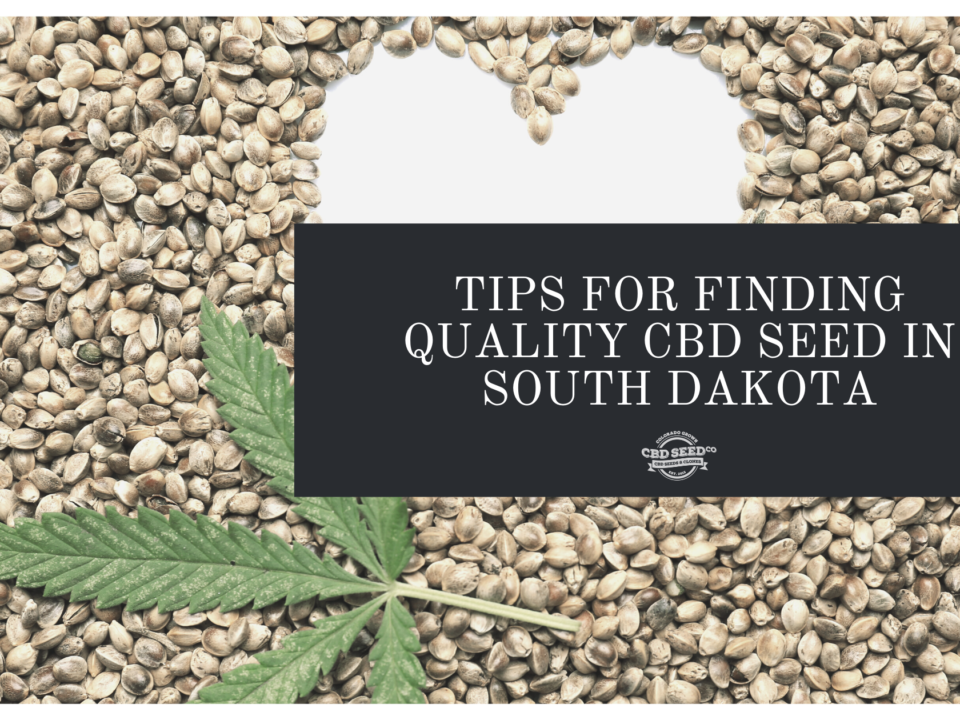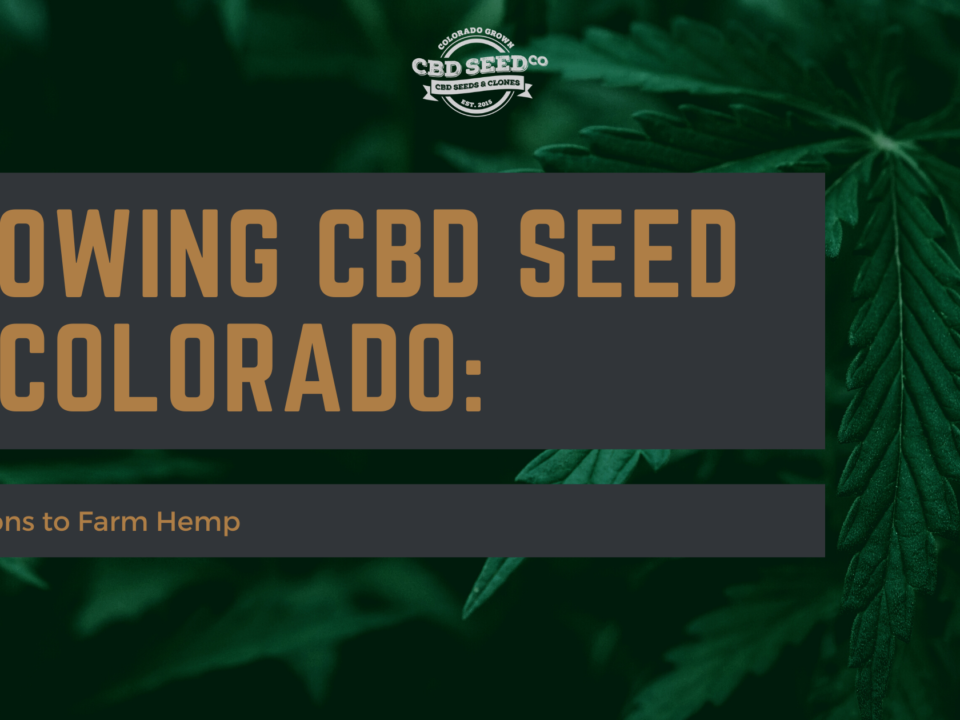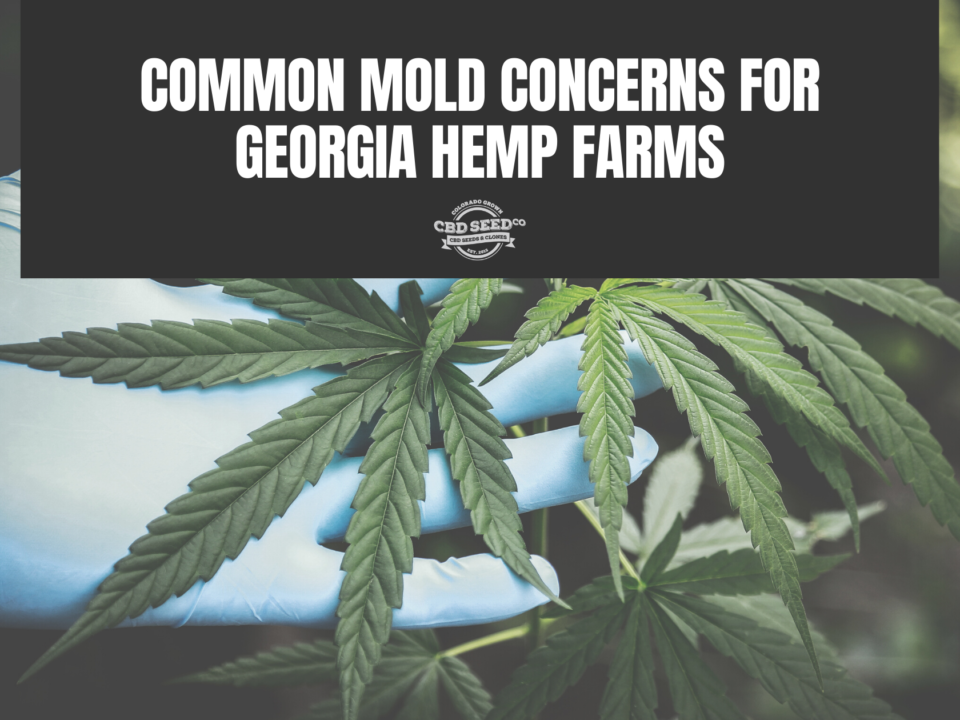8 Common Hemp Farming Mistakes When Planting CBD Seed In Illinois

3 Tips for Growing CBD Seed In Alabama
September 11, 2020
Growing CBD Seed: How to Start a Hemp Farm in California
September 14, 2020Illinois is one of the later states to have created its own regulatory hemp farming program. Now that they have an established USDA-approved program, numerous farmers from across the state are getting licenses approved. These licenses provide farmers with the opportunity to grow either high CBD hemp or industrial hemp. When it comes to cultivation needs, these two crops actually require some different techniques. For farmers that are interested in tapping into the lucrative CBD industry, growing high CBD hemp is the way to go. Here are eight common hemp farming mistakes made by individuals planting CBD seed in Illinois.
What Mistakes to Avoid When Planting CBD Seed In Illinois
- Improper germination of CBD seed: Some individuals prefer directly sowing seeds into the dirt since it is a lot less labor-intensive and is usually a successful method. However, those that prefer germinating their CBD seeds will have to follow the proper protocol so that your efforts don’t fail before your season even begins. Always keep your seeds free from any dirt or debris. They enjoy humid environments with a temperature range of 71 and 77 degrees.
- Not enough research: Beginner and experienced farmers alike need to do the right amount of research in order for their farms to succeed. Especially when it comes to growing hemp, a lot of things come with experience and aren’t available online. It’s best to consult with a professional hemp farmer to gain the knowledge you need. Many cultivation requirements are also strain-specific. That means that you’ll need to consult with your Illinois CBD seed supplier to find out all the various requirements ranging from nutrients to lighting needs.
- Too little or too much light: Hemp can be sensitive to lighting requirements. Each strain has different lighting needs which also change throughout the plant life cycle. Having hemp crops that are exposed to too much light can cause sunburn and make your plants more susceptible to other conditions. If your light source is too far away from your hemp, then this results in lanky, tall plants that struggle to even support their weight.
- Planting seeds into deprived, nutrient-poor soil: Hemp and all cannabis varieties require certain nutrients in order to grow. One of the biggest mistakes you can make is planting your CBD seed into nutrient-poor, deprived soil. Soil should always have the macronutrients like nitrogen, phosphorus, and potassium. Take the time to research your strain’s nutrient needs and have your soil tested beforehand. Make sure your soil isn’t too densely packed together so that enough oxygen can make it down to the roots. The soil should always be airy and light to allow proper water drainage as well.
- Wrong nutrient regimen: A consistent, proper nutrient regimen is always required for the success of any crop. Make sure you understand the nutrient requirements of your strain so that you can craft the right regimen. Some farmers make the mistake of overfertilizing– the more fertilizer does not equal better.
- Overwatering your CBD hemp: Overwatering is a big concern for hemp crops. While hemp is rather resilient to temporary lapses of underwatering or mild droughts, it can run into a lot of issues if it is consistently overwatered. Overwatering leads to constantly wet soil which prevents the right amount of oxygen from reaching your plant’s roots. Wet soil can make your CBD hemp susceptible to fungus, root rot, and mold.
- Missing the signs of wrong pH levels: While noticing the signs of the wrong pH often comes with experience, it’s crucial to quickly learn these or consult with an experienced hemp farmer. Once you gain an understanding of the proper pH levels your plants need, you’ll need to have your soil tested. Soil amendments can be successfully achieved through the use of natural materials. Lime or wood ash can help increase soil pH while sulfur or aluminum sulfate can help lower these levels.
- Incompatible, unknown, or poor genetics: Don’t fall into the trap of purchasing industrial hemp seed for producing CBD. These seeds are quite a bit less expensive but will not contain the CBD content needed for resale. Unknown genetics also pose the serious issue of not being able to properly prepare for your grow season. Strain-specific requirements must be known in all regards to cultivation. Always purchase your CBD seed from a reputable supplier.
Work with Illinois’ Trusted CBD Seed Supplier
CBD Seed Co. is honored to be the trusted CBD seed supplier serving the state of Illinois. Our highly-experienced hemp farmers are always here to help with consultations and guidance so that you have a successful season and harvest. We would love to help you create a comprehensive plan for your farming needs. For more information regarding what mistakes to avoid when planting CBD seed, please contact us!





